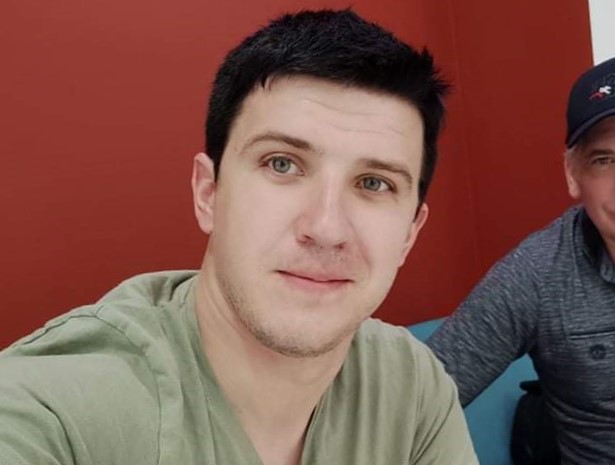Paris, April 1, 2022 – Anyone with information on the whereabouts of Ukrainian journalist Konstantin Ryzhenko must come forward at once, and Russian authorities should stop detaining members of the press for their work, the Committee to Protect Journalists said Friday.
On Wednesday, March 30, Russian soldiers searched in the southern Ukrainian city of Kherson for Ryzhenko, and his family lost contact with him that day, according to Sergei Chernyavsky, a friend of Ryzhenko’s who spoke to CPJ via messaging app and published about the journalist’s situation on Facebook.
On Thursday, a post appeared on Ryzhenko’s Telegram account, saying “if you are reading this text it means that something has happened.”
The post explained that Ryzhenko, the chief editor of the Kherson Newscity local news website, had scheduled that post for publication ahead of time; if it published, it was because the journalist had been detained or lost access to his phone or to the internet.
“Where Kostya is now is unknown. There is no connection with him,” Chernyavsky told CPJ on Friday. Kherson has been occupied by the Russian military since March 2, according to media reports.
“We are worried about the disappearance of Ukrainian journalist Konstantin Ryzhenko and call on anyone with information on his whereabouts to come forward at once,” said Gulnoza Said, CPJ’s Europe and Central Asia program coordinator, in New York. “Russian authorities controlling the city of Kherson should disclose any information about Ryzhenko’s status without delay. His disappearance adds to a growing list of Ukrainian journalists who have gone missing since the beginning of the Russian invasion.”
On Thursday, Russian soldiers searched Ryzhenko’s family’s apartment in Kherson, detained the journalist’s brother Zakhar, and seized Zakhar’s phones after accusing him of using the encrypted messaging app Signal, according to the Ukrainian National Union of Journalists (NUJU).
The journalist’s father, Aleksandr, was present during that raid and told the NUJU that the soldiers demanded he get in touch with Konstantin. Aleksandr said Russian soldiers told him that “many people died” because of Ryzhenko, and asked about whether Konstantin was reporting solely for the money he made, and whether he had “nationalist views.” The soldiers said that if the journalist was working solely for money, they could “find a common language with him.”
Chernyavsky told CPJ that he believed Russian authorities were pursuing Ryzhenko because he had streamed and recorded anti-Russian demonstrations by civilians in Kherson. He was also cited as a source on the situation in Kherson by news outlets including the BBC and the Latvia-based outlet Meduza.
In an interview with Meduza before his disappearance, Ryzhenko said that he had been “tracking Russian fakes and refuting them” since the beginning of the war, and that Russian forces had been “asking where they could find such a journalist.”
Since the beginning of the Russian invasion of Ukraine, several journalists have been abducted in connection with their work. Maks Levin and Iryna Dubchenko are still missing.
CPJ emailed the Russian Ministry of Defense and the Kherson regional police for comment, but did not receive any replies.
